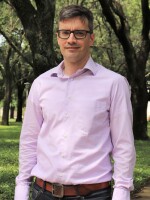For six weeks, Florida Matters will explore how the state's population boom is affecting important issues in our lives. In "Our Changing State," we’ll share stories from local residents about how change has affected them. We'll then invite experts in to answer questions you and your neighbors submitted through an online survey about each of these issues.
In the final part of our series, we’re talking about Florida's politics and diversity.
Florida has long been seen as a ‘purple’ state — a place that can tip a presidential election for Democrats or Republicans. And as our population has grown, so has Florida’s political influence.
Gov. Ron DeSantis’s emphatic reelection in 2022 appeared to seal Florida’s identity as a red state. And a wave of polarizing policy choices have made this state something of a testing ground for an uncompromising brand of conservatism.
But with a diverse and growing population, our state’s politics are more nuanced than election results might suggest.
WUSF's Matthew Peddie talks with University of South Florida professor emerita of political science Susan MacManus at her home in Land O’Lakes. MacManus is retired after 47 years teaching political science but the 76-year-old is still a familiar name as a political analyst.

We asked you what questions you have about the issues through an online survey. Host Matthew Peddie then asked our expert guests about the questions submitted. The panel of guests includes:
- Tara Newsom, a professor of social and behavioral sciences and founding director of the Center for Civic Learning and Community Engagement at St. Petersburg College.
- Eduardo Gamarra, a professor in the Department of Politics and International Relations and director of the Latino Public Opinion Forum at Florida International University’s Green School of Public and International Affairs.
Here's a sampling of questions and comments submitted through our online survey (some have been edited for length and clarity):
I support Ron DeSantis, especially his views on gender ideology and all of that. [However] many conservatives would not support issues K. Anderson would want to address … such as improving mass transit and reducing the importance of tourism in our economy. - K. Anderson, Orlando
Eduardo Gamarra: The focus on wokeness has sort of obscured the real issues affecting Florida and even among Republicans. When you separate the wokeness kinds of questions in the surveys that we do, most Floridians agree: we have a serious insurance crisis, we have a serious environmental crisis. Even Marco Rubio now believes in climate change. And so even conservatives are talking about some of the real issues that are affecting Florida. The problems of flooding, for example, that are now a real crisis in the city of Miami and in Fort Lauderdale. The whole issue with traffic, for example, on some of the local polls that we do here. And then the cost of rent in most urban centers in Florida is a huge issue. So this overwhelming focus on wokeness has essentially rendered, I think, this administration absolutely useless on addressing the key issues that affect Floridians.
No party affiliation. That speaks volumes. - Mike, Clearwater
Tara Newsom: For a number of decades, we've moved towards this candidate-centered politics and moving away from the party affiliation. And the more we move away from the party affiliation, the less individuals that are contributing to political thought in those parties. So you see more radicalization or fundamentalism hit the Democratic Party and the Republican Party because there's less of us contributing to the development of the platform or development of the policies. And so those that are left within really can control candidate selection and policies. So I think that no party affiliate piece is really a reflection of individuals not wanting to contribute to the traditional two party system and finding themselves in this kind of ocean of 'who am I.' But don't mistake that NPA is not having some type of political socialization or ideology and we certainly see that when we evaluate voting outcomes. After November, we look and see — especially in Florida, in a closed primary state — how did these NPAs actually vote and you see ideological trends in there.
You can listen to the full conversation by clicking on the “Listen” button above. Or you can listen on the WUSF app under “Programs & Podcasts.




